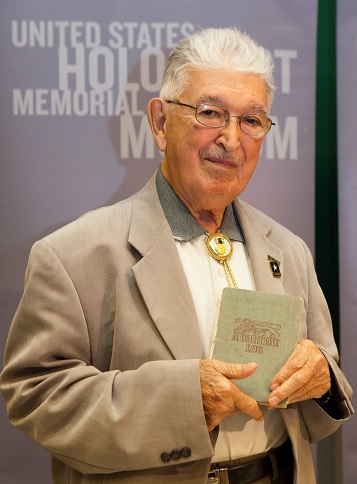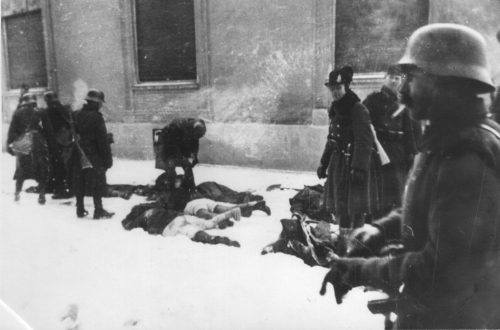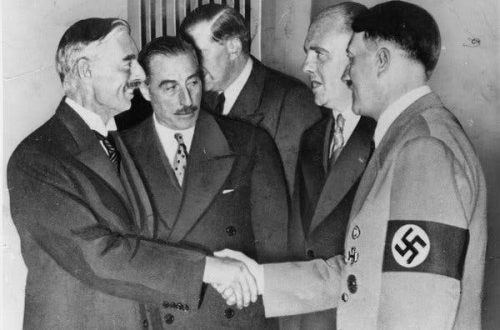
Anthony Acevedo, the first Mexican American soldier to be designated a Holocaust survivor, has died at the age of 93.
He was a corporal when he and other members of his depleted unit were captured Jan. 6, 1945. He was first taken to a large POW camp, Stalag IX-B, where he was interrogated by a German officer.
“He pointed at me with his baton,” Mr. Acevedo told the Press Enterprise of Riverside, Calif., in 2009. “He knew everything about me. He knew about my family. He talked to me in Spanish and English. He said, ‘You were born in San Bernardino and raised in Pasadena. Your parents were kicked out of the United States. That’s what the Americans do.’ ”
All the facts were correct: Mr. Acevedo’s Mexican-born father was an engineer who worked on U.S. government projects before his family was deported in 1937 for not having proper immigration papers.
Anthony Acevedo was 13 at the time. While living in Durango, Mexico, he and a friend deciphered Morse code messages sent by two German men to submarines off the coast and turned them in to the police. The Germans were prosecuted for espionage.
Mr. Acevedo’s interrogators at the POW camp knew all these things and believed Mr. Acevedo was withholding other information and was possibly a spy.
“I kept saying, ‘I don’t know nothing,’ ” he later recalled. “They slapped my face and put needles under my fingernails.”
During a roll call in early February 1945, the Germans ordered all Jewish prisoners at Stalag IX-B to step forward, then selected others who “looked” Jewish, were seen as troublemakers or were deemed “undesirable.” Mr. Acevedo, who was Catholic, was one of 350 men told they were being sent to a “beautiful camp” with a theater and entertainment.
“It turned out to be the opposite,” he told CNN in 2008. “They put us on a train, and we traveled six days and six nights. . . . They had us 80 to a boxcar. You couldn’t squat.”
The train stopped at Berga an der Elster, a subcamp of Buchenwald, one of Germany’s largest concentration camps. It was a slave labor camp, where U.S. service members and other prisoners were forced to dig tunnels for the Nazi war effort.
As a medic, Mr. Acevedo cared for his fellow prisoners and was exempt from hard labor. But he still endured harsh treatment, including beatings and other forms of brutality.
…..
Mr. Acevedo first spoke publicly of his wartime experiences to CNN in 2008. The Army later determined that he and other prisoners from Berga were not ordinary POWs but were victims of Germany’s network of concentration and slave labor camps.In 2010, the U.S. Holocaust Memorial Museum in Washington acquired Mr. Acevedo’s diary and other artifacts and interviewed him for an oral history. He became the first non-Jewish Mexican American to be recognized as a Holocaust survivor.


